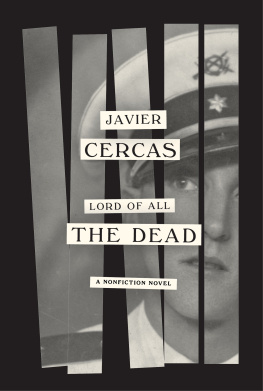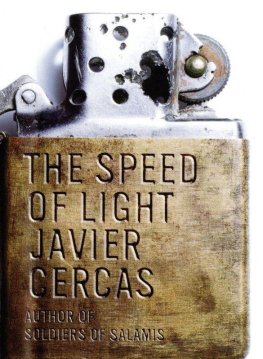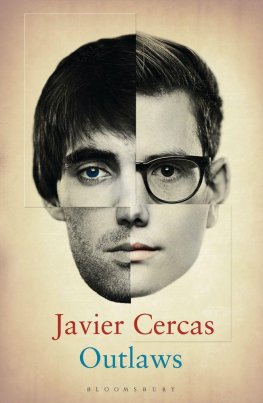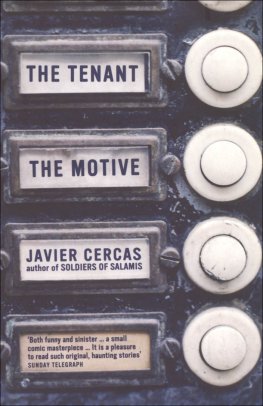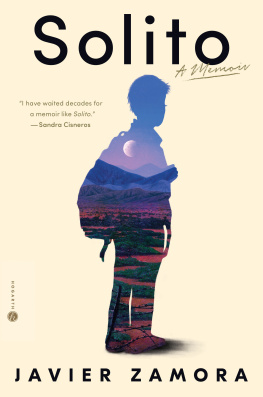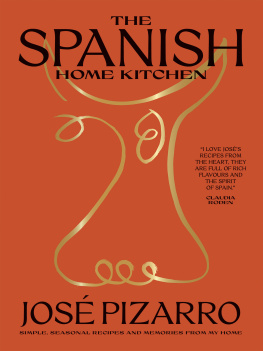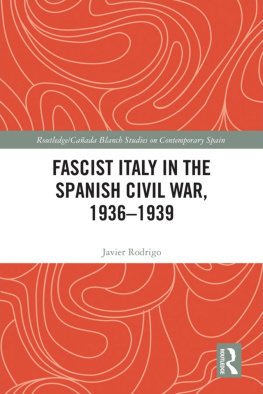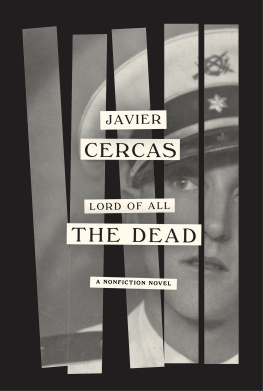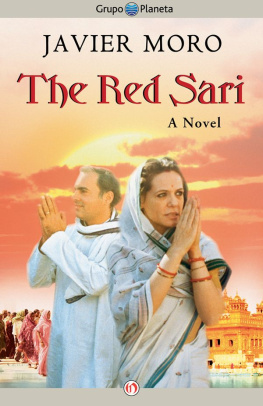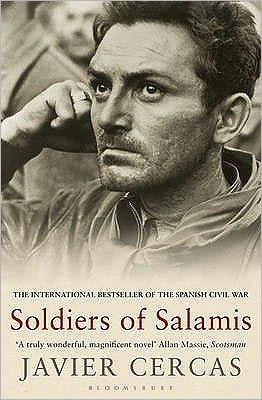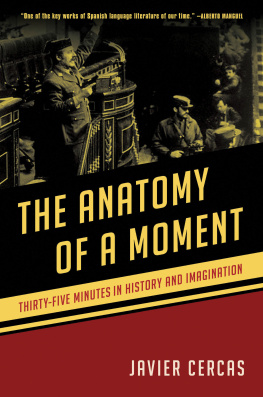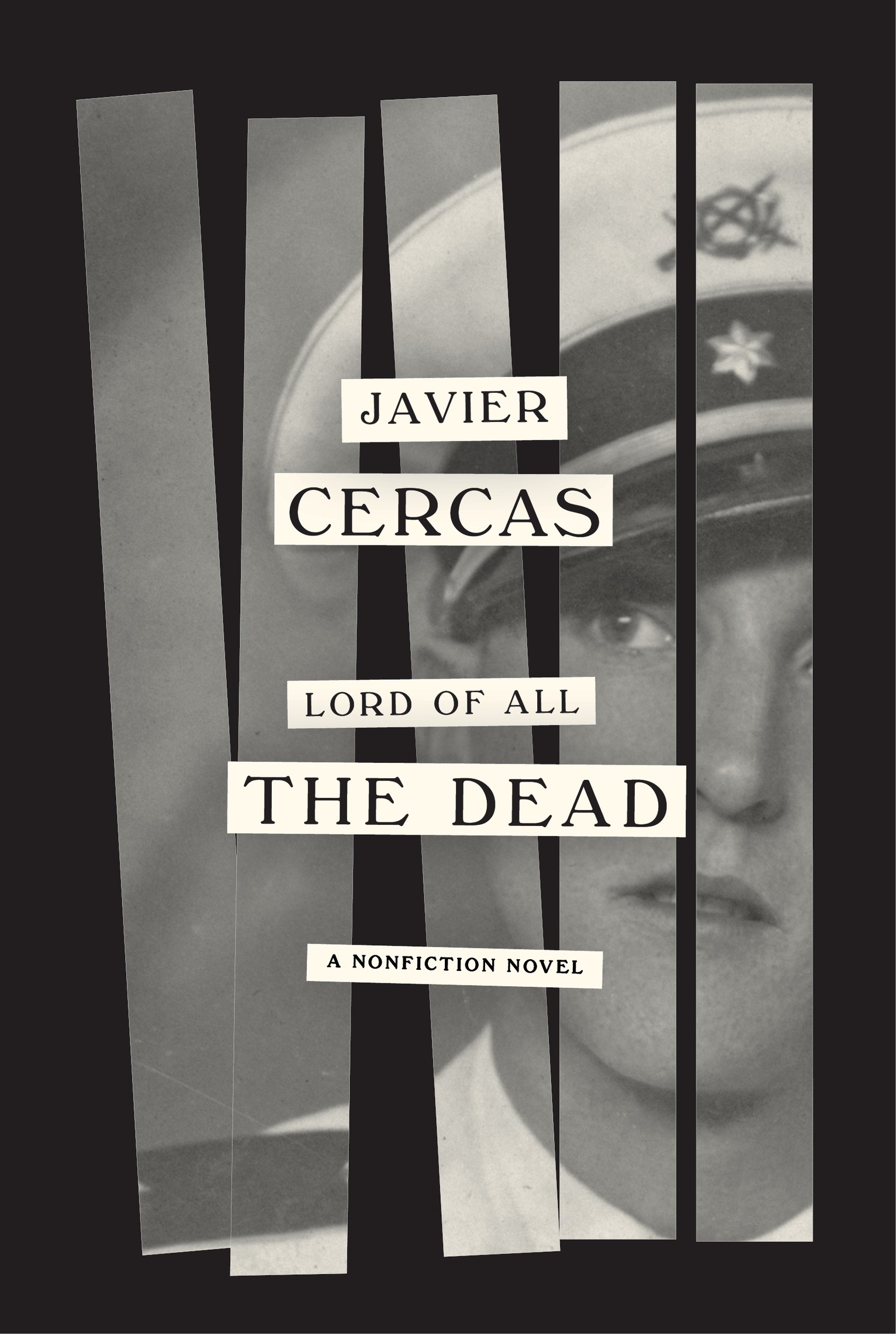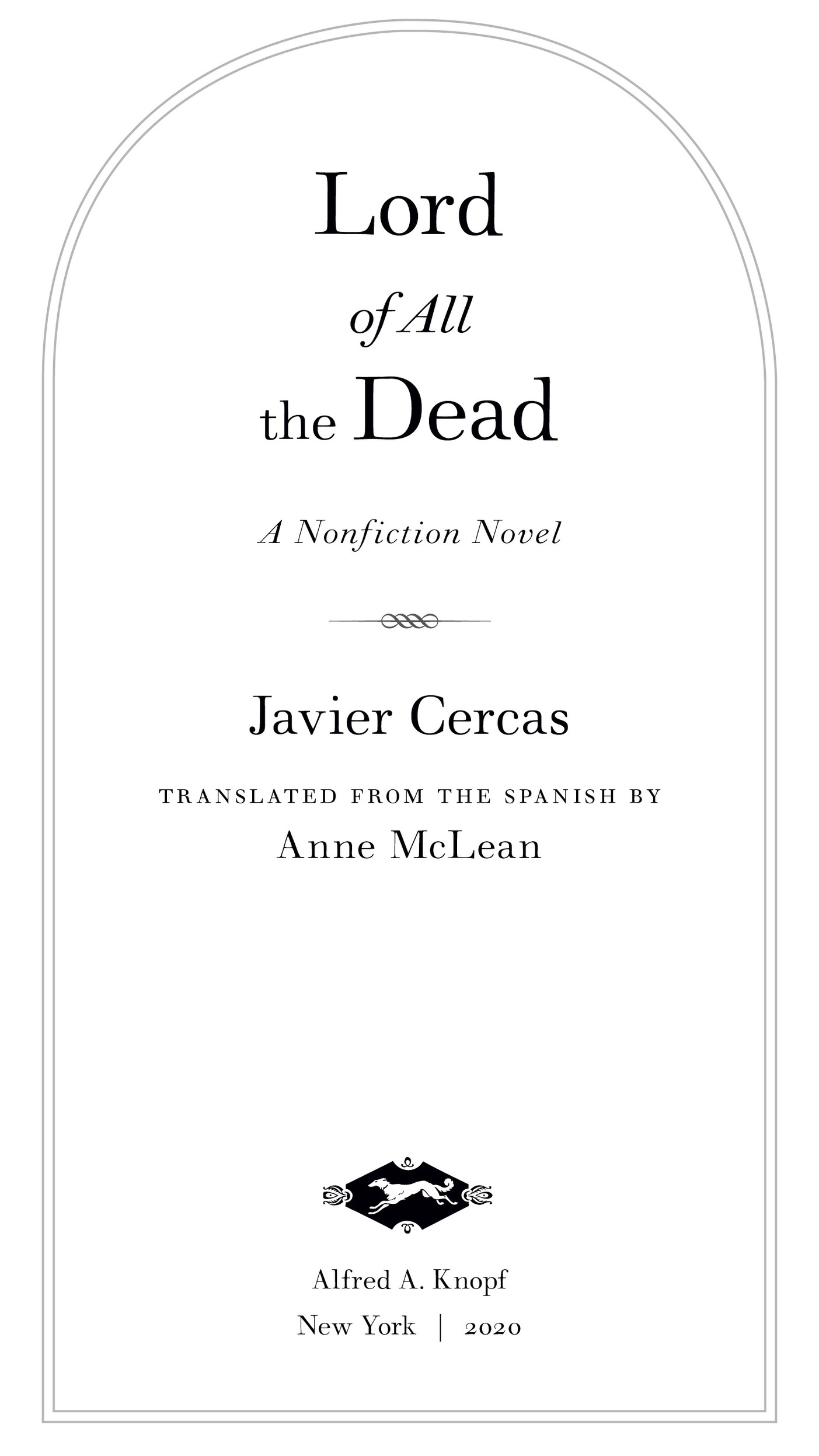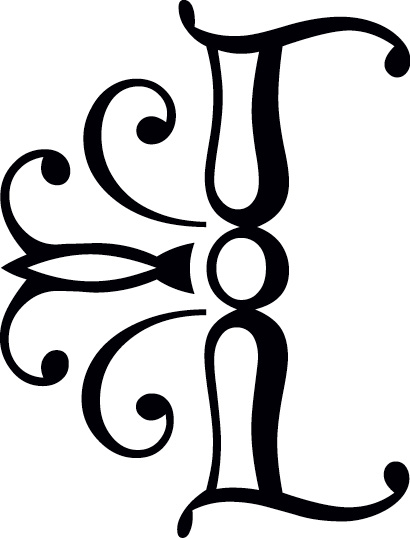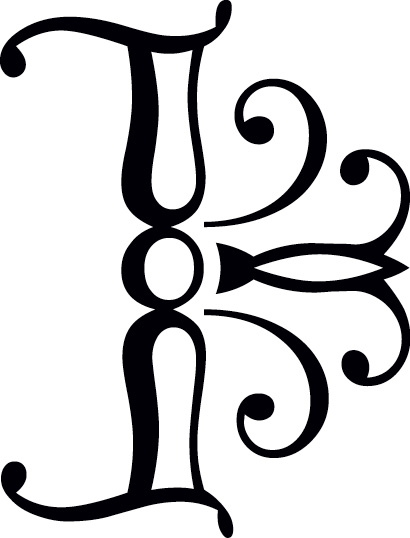OTHER BOOKS BY JAVIER CERCAS
Soldiers of Salamis
The Tenant and The Motive
The Speed of Light
The Anatomy of a Moment
Outlaws
The Impostor
The Blind Spot: An Essay on the Novel
THIS IS A BORZOI BOOK
PUBLISHED BY ALFRED A. KNOPF
Copyright 2017 by Javier Cercas
English translation copyright 2019 by Anne McLean
All rights reserved. Published in the United States by Alfred A. Knopf, a division of Penguin Random House LLC, New York, and in Canada by Random House of Canada, a division of Penguin Random House Canada Ltd., Toronto. Originally published in the Spanish language as El monarca de las sombras by Javier Cercas, Penguin Random House Grupo Editorial, S. A. U. in 2017.
www.aaknopf.com
Knopf, Borzoi Books, and the colophon are registered trademarks of Penguin Random House LLC.
Library of Congress Cataloging-in-Publication Data
Names: Cercas, Javier, 1962 author. | McLean, Anne, 1962 translator.
Title: Lord of all the dead : a nonfiction novel / by Javier Cercas ; translated from the Spanish by Anne McLean.
Other titles: Monarca de las sombras. English
Description: First edition. | New York : Alfred A. Knopf, [2019] | A Borzoi bookTitle page verso. |
Identifiers: LCCN 2019016660 (print) | LCCN 2019981499 (ebook) | ISBN 9780525520900 (print) | ISBN 9780525520917 (ebook)
Subjects: LCSH: Cercas, Javier, 1962FamilyFiction. | Ibahernando (Spain)History20th centuryFiction. | SpainHistoryCivil War, 19361939Fiction. | GSAFD: Biographical fiction. | Historical fiction.
Classification: LCC PQ6653.E62 M6613 2019b (print) | LCC PQ6653.E62 (ebook) | DDC 863/.64dc23
LC record available at https://lccn.loc.gov/2019016660
LC ebook record available at https://lccn.loc.gov/2019981499
Ebook ISBN9780525520917
Cover photograph of Manuel Mena, courtesy The Cercas Mena Family Archives
Cover design by Janet Hansen
ep_prh_5.4_c0_r1
Contents
For Ral Cercas
and
Merc Mas
For Blanca Mena
Dulce et decorum est pro patria mori.
How sweet and honourable it is to die for ones country.
HORACE , Odes, III.2.13
His name was Manuel Mena, and he died at the age of nineteen in the Battle of the Ebro. It was September 21, 1938, towards the end of the Spanish Civil War, in a Catalan village called Bot. He was an enthusiastic supporter of Franco, or at least an enthusiastic Falangist, or at least he was at the beginning of the war: that was when he enlisted in the Third Bandera of the Cceres Falange, and the following year, having recently attained the rank of provisional second lieutenant, he was posted to the First Tabor of Ifni Riflemen, a shock unit belonging to the Corps of Regulars. Twelve months later he died in combat, and for years he was the official hero of my family.
He was my mothers uncle on her fathers side, and she has told me his story countless times since I was a boy, or rather his story and his legend, so often that even before I was a writer I thought I would have to write a book about him one day. I discarded the idea as soon as I became a writer; the reason is that I felt that Manuel Mena was the exact paradigm of my familys most onerous legacy, and telling his story would not only mean taking on his political past but also the political past of my whole family, which was the past that most embarrassed me. I did not want to take that on, I did not see any need to, and much less to discuss it at length in a book: it was enough to have to learn to live with it. Besides, I wouldnt have even known how to start telling that story: should I have stuck strictly to reality, to the truth of events, supposing that such a thing were possible and that the passing of time had not opened impossible-to-fill gaps in Manuel Menas story? Should I have mixed reality and fiction, to plug up the holes inevitably left by the former? Or should I have invented a fiction out of reality, even though everyone might believe it was true, or in order for everyone to believe it was true? I had no idea, and my ignorance of the form seemed to be an endorsement of my decision on the content: I should not write the story of Manuel Mena.
A few years ago, however, that old refusal seemed to enter into a crisis. By then my youth was far behind me. I was married and had a son; my family was not going through a great time: my father had died after a long illness and, after five decades of marriage, my mother was still having difficulty adjusting to the thankless stage of widowhood. My fathers death had accentuated my mothers natural propensity to melodramatic, resigned, and catastrophic fatalism (Oh, son, was one of her most well-worn maxims, may God not send quite as many sorrows as were able to bear), and one morning a car struck her on a crosswalk; the accident was not particularly serious, but my mother got a bad scare and found herself forced to remain seated in an armchair for several weeks with her body covered in bruises. My sisters and I urged her to leave the house, took her out for meals and excursions and took her to her parish church for Mass. I wont forget the first time I went with her. We had walked the hundred yards between her house and the Sant Salvador parish church, and, when we were about to cross the street at the crosswalk, she squeezed my arm.
Son, she whispered, blessed are those who believe in crosswalks, for they shall see God. I was just about to.
During that convalescence I visited more frequently than usual. I often even stayed overnight, with my wife and son. The three of us would arrive on Friday afternoon and stay until Sunday evening, when we went back to Barcelona. During the day we talked or read, and in the evening we watched films or television programmes, especially Big Brother, a reality show my mother and I loved. Of course, we talked about Ibahernando, the village in Extremadura from which my parents had moved to Catalonia in the sixties, as so many people from Extremadura did in those years. I say, of course, and I understand I have to explain why I say that; its easy: because there is no event as significant in my mothers life as emigration. I say there is no event as significant in my mothers life as emigration, and I understand I should also explain why I say that; this is not so easy. Twenty years ago I tried to explain it to a friend by saying that overnight my mother went from being the privileged daughter of a patrician family in small-town Extremadura, where she was everything, to being not much more than a proletarian or a little less than a petit-bourgeois housewife overwhelmed with children in a Catalan city, where she was nobody. As soon as I had formulated it, the answer struck me as valid but insufficient, so I wrote an article titled The Innocents, which still seems the best explanation I know how to give of this matter; it was published on December 28, 1999, Feast Day of the Innocents and thirty-third anniversary of the date my mother arrived in Gerona. It goes like this:

